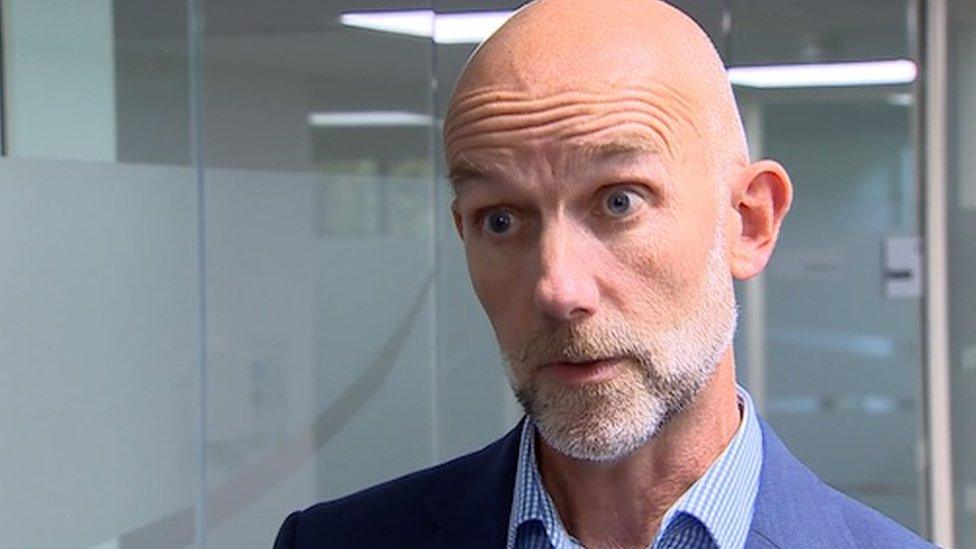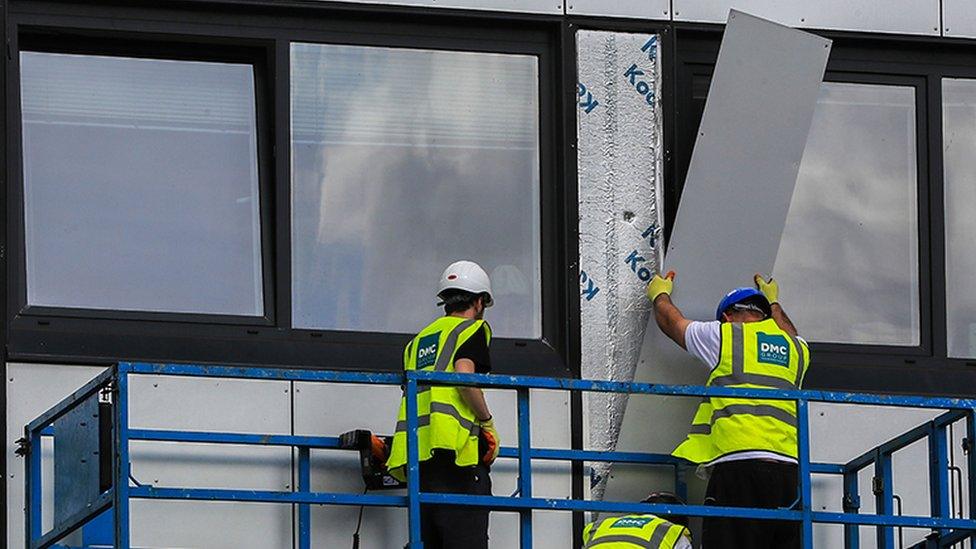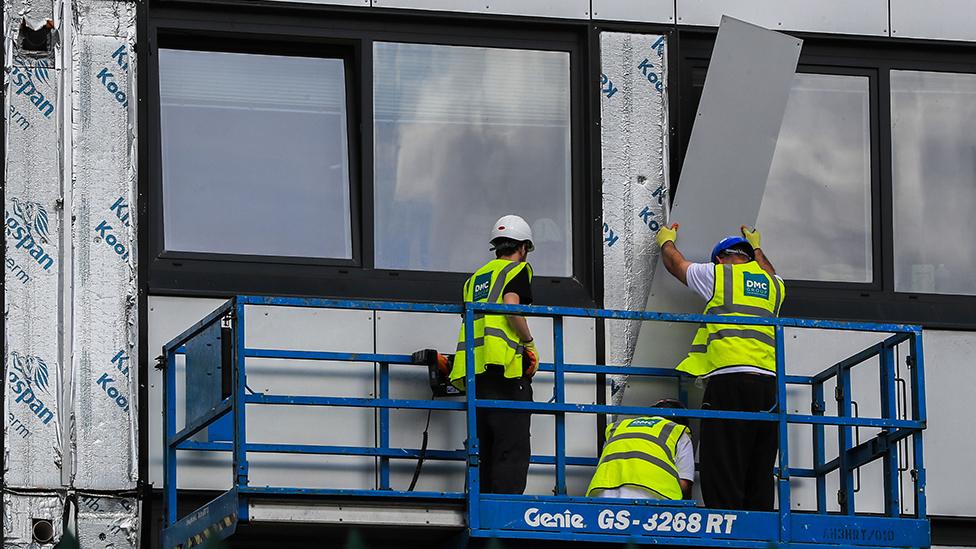Building safety: Wales watchdog criticises councils
- Published

Seventy-two people died at Grenfell Tower in London in June 2017
There are concerns over how Wales will enforce new building rules drawn up to avoid another Grenfell Tower fire, according to a spending watchdog.
Adrian Crompton says Wales' councils and fire and rescue services are unable to ensure buildings are safe.
Becky Ashwin, who lives in a Cardiff Bay development, said there were four fires in as many months last year at her complex.
The Welsh Local Government Association declined to comment.
The report by auditor general Adrian Crompton sets out a series of concerns about plans to tighten up Wales' building safety regime.
It said council-run building control services, staffed by an ageing-workforce, would struggle to cope.
It also warned that the financial management of building control with some councils was potentially unlawful because it does not operate in line with regulations and guidance.
The Welsh government has also been criticised for not fully explaining yet how part of the new system will work.
Separately, the Welsh Conservatives expressed concern after an Freedom of Information request showed no developers have yet applied to a £20m loan scheme for remediation works.
Councils enforce building regulations through a system called building control. Fire and rescue services also inspect buildings to ensure they are compliant with the law.
"Our overall conclusion is that responsible bodies - particularly local authorities and fire and rescue - are unable to effectively discharge their responsibilities and ensure buildings in Wales are safe," the report said.
The Building Safety Act was passed in the UK Parliament last year, with sections that would apply to Wales requiring developers of high-risk buildings will have to show safety measures are in place three times before the building is used from April 2025.
Safety regulations are being toughened following the Grenfell Tower fire in London in June 2017 which killed 72 people.
Unlike in England, where the UK government has put the Health and Safety Executive in charge as a building safety regulator, the Welsh government is planning to make this a role for councils.
Some fire and rescue staff and approved inspection bodies raised concerns with Mr Crompton that councils were not sufficiently resourced or suitably experienced to deliver the role.

The development Becky Ashwin lives in has issues with fire safety
Ms Ashwin's development has issues with fire safety, including flammable insulation and cladding and missing fire breaks.
She said the overall cost of insurance had rocketed from £67,000 to £624,000 per year for all seven blocks since the cladding scandal and has seen her service fees double to £4,000 a year.
"Your home is the place you're supposed to go to and feel safe and in this instance we just can't," she said.
"We had four fires last year in as many months and I was standing outside for hours on end while the fire crews are tackling it.
"You just wonder, 'is this the time when I lose my home and everything in it'?"
The Welsh government, the report said, is yet to say how this part of the new system will work or what its expectations of council services are, while councils are worried about the late development of policy decisions.
The report said while most councils and fire and rescue services have a good understanding of local building safety risks, they were yet to set out how they would deal with the new law.
Councils are struggling to fill vacant posts and more than half of Wales' full-time council-based surveyors and managers are over 50, with only 10% under the age of 30, resulting in a likely "major loss of experience and knowledge when people retire in the next decade".
It said fire and rescue bodies face similar retention and recruitment issues among their staff.

Adrian Crompton is Auditor General, and Wales' public spending watchdog
The report said austerity has suppressed wages and reduced staff numbers in building control, coupled with a lack of investment in training and development.
"Very few" councils have developed a specific plan to implement the changes being made to the building safety regime, and the report said no one that was interviewed could articulate a clear vision on what their service needed to achieve.
The report makes a number of recommendations of Welsh government and councils, including that ministers should provide "greater clarity" on what the Building Safety Act means for Wales, and provide sufficient resources.
Mr Crompton said: "Although it's heartening to see the passion and commitment from those working in the sector, I am concerned that not enough priority is being given to these services on the ground."
The Welsh government welcomed the report and said reforming the sector was "a priority".
A spokesman added: "We have developed a phased timetable for implementation of the Building Safety Act provisions which apply to Wales. This has been communicated widely to the industry and other stakeholders and work will begin early in 2024."
'Alarming'
Welsh Conservative housing spokeswoman Janet Finch-Saunders called the report "alarming" and said it provided "a catalogue of evidence that the buildings safety regime in Wales is broken".
Her Plaid Cymru counterpart, Mabon ap Gwynfor, said the report "rightly points out the significant weaknesses under the building safety regime in Wales currently and that more work needs to be done".
Ms Finch-Saunders said the fact no developers had applied to the Welsh government loan scheme to help pay for remedial works, months after it was announced in March, meant minister had to "either promote this scheme better or use the money set aside for a more definitive outcome".
However the Welsh government said there was no need for promotion as all eligible developers were aware of the loan.
It added: "It is positive developers have not felt the need to access loans to undertake their planned works to date, however the scheme remains in place to allow developers to overcome any potential financial barriers to works proceeding at pace."
Related topics
- Published15 May 2022

- Published4 May 2022

- Published10 February 2022

- Published21 March 2023
